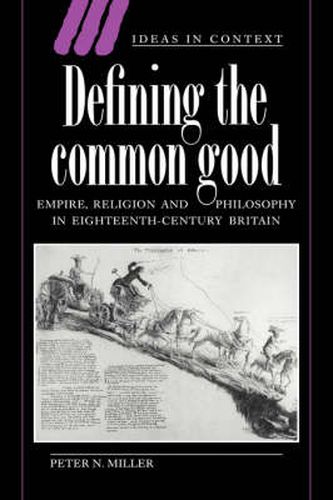Readings Newsletter
Become a Readings Member to make your shopping experience even easier.
Sign in or sign up for free!
You’re not far away from qualifying for FREE standard shipping within Australia
You’ve qualified for FREE standard shipping within Australia
The cart is loading…






The theme of this book is the crisis of the early modern state in eighteenth-century Britain. The revolt of the North American colonies and the simultaneous demand for wider religious toleration at home challenged the principles of sovereignty and obligation that underpinned arguments about the character of the state. These were expressed in terms of the ‘common good’, ‘necessity’, and ‘community’ - concepts that came to the fore in early modern European political thought and which gave expression to the problem of defining legitimate authority in a period of increasing consciousness of state power. The Americans and their British supporters argued that individuals ought to determine the common good of the community. A new theory of representation and freedom of thought defines the cutting edge of this revolutionary redefinition of the basic relationship between individual and community.
$9.00 standard shipping within Australia
FREE standard shipping within Australia for orders over $100.00
Express & International shipping calculated at checkout
The theme of this book is the crisis of the early modern state in eighteenth-century Britain. The revolt of the North American colonies and the simultaneous demand for wider religious toleration at home challenged the principles of sovereignty and obligation that underpinned arguments about the character of the state. These were expressed in terms of the ‘common good’, ‘necessity’, and ‘community’ - concepts that came to the fore in early modern European political thought and which gave expression to the problem of defining legitimate authority in a period of increasing consciousness of state power. The Americans and their British supporters argued that individuals ought to determine the common good of the community. A new theory of representation and freedom of thought defines the cutting edge of this revolutionary redefinition of the basic relationship between individual and community.